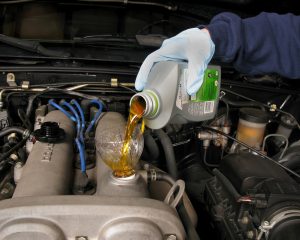 Driving a car is potentially one of the most dangerous things that you can do. But you can prevent problems by monitoring the following five functions. This can help you to prevent an accident, breaking down, and make sure you have a smooth ride.
Driving a car is potentially one of the most dangerous things that you can do. But you can prevent problems by monitoring the following five functions. This can help you to prevent an accident, breaking down, and make sure you have a smooth ride.
- Oil Check
Checking your oil is by far the most important weekly check you can do to keep your car running smoothly. This is an easy check that you can do yourself, simply pull out the dipstick to see where the oil level is. In more modern cars the oil gauge on the dashboard will alert you to low oil levels.
- Tires
Invest in a tire pressure gauge or check the pressure of your tires at the gas station. Improperly inflated tires can cause blowouts, leading to an accident and poor fuel efficiency. It is important to check your tire pressure regularly.
Tires have built-in tread wear indicators. When the tread becomes even with the indicator ridges it is time to invest a new set of tires. Monitor the wear on your tires monthly by running your hand over the tread. If anything feels weird, pop down to a tire shop to have them checked. Your tires can slip or blow out if they are smooth, both of which can cause a bad accident.
- Lights
It is very dangerous to drive if your lights aren’t in good working order. Regularly check your brake lights, turn signals, headlights, and reverse lights. Functioning lights are essential to avoiding accidents. As an extra incentive remember that if you are caught with a light out on your car, you could end up getting a ticket which could mean higher car insurance.
- Air Filter
A clogged air filter is like putting a sock over your mouth and trying to breathe. You won’t get much air in and you will feel gross. Your engine feels the same way with a clogged air filter. A clogged air filter will also result in reduced gas mileage, lower horsepower, or even a stalled engine. Air filters need to be checked and changed regularly; most manufacturers recommend changing the air filter every 5,000 miles.
- Brake Pads
Good brakes are essential, so how often do your car’s brake pads need to be changed? The wear on your brake pads depends on a number of factors, such as how you drive, what type of driving you do, the quality of your brake pads, the weight of your car, and the condition of the brake rotors.
Brake pads need to be changed when the built-in wear indicator alerts you. There is usually a small metal tab on the brake pad which will start to screech or scrape around the brake rotor. When you hear this, it is time to change the brake pads. If you ignore this signal, you can damage your rotor, making the brake less effective, which is dangerous and could cost you more money.
Keep your car driving smoothing by regularly checking these five functions. By doing this you can save fuel, money, and even your life.
https://www.flickr.com/photos/29233640@N07/3285710885/sizes/l
Image via Flickr by Robert Couse-Baker








